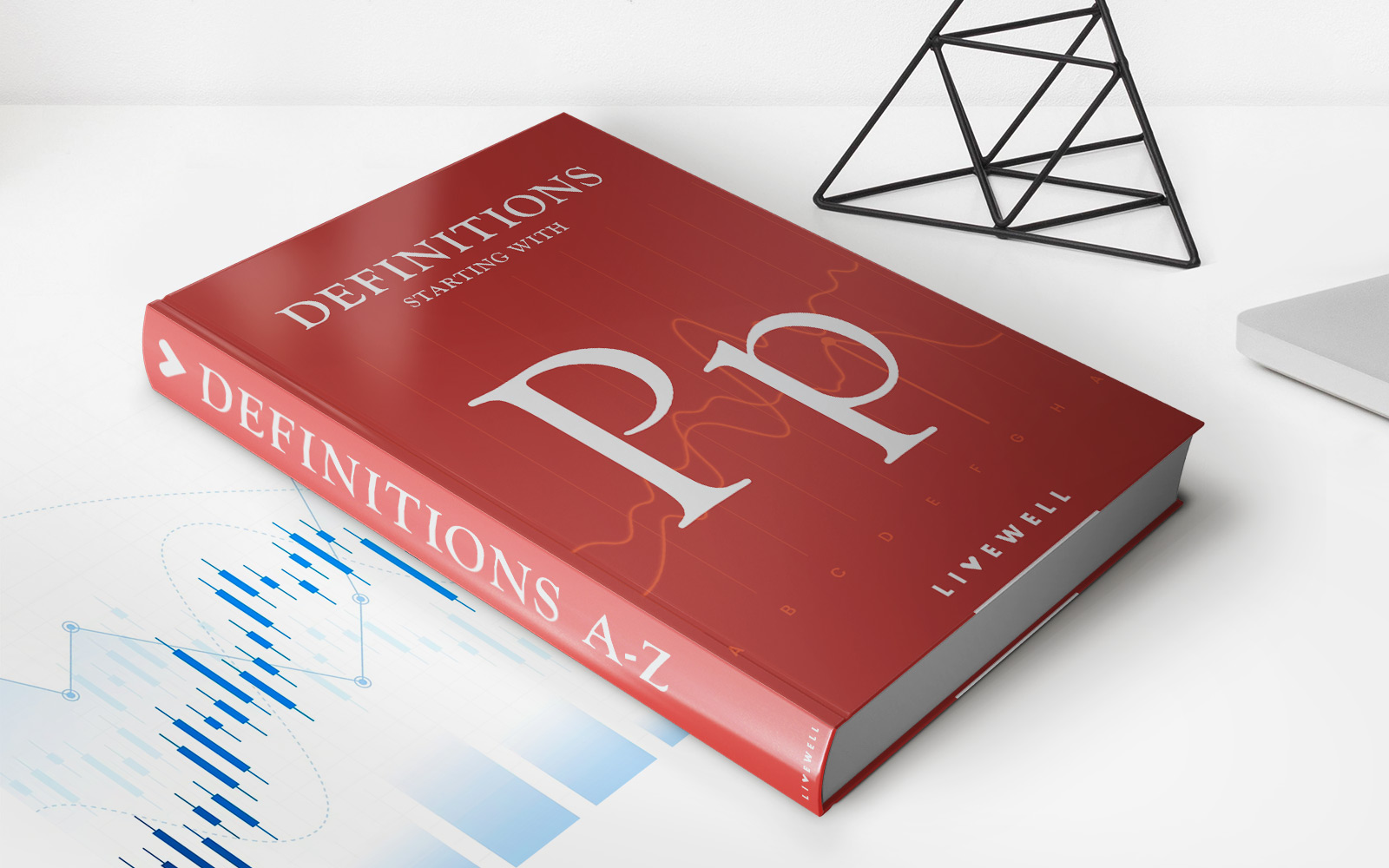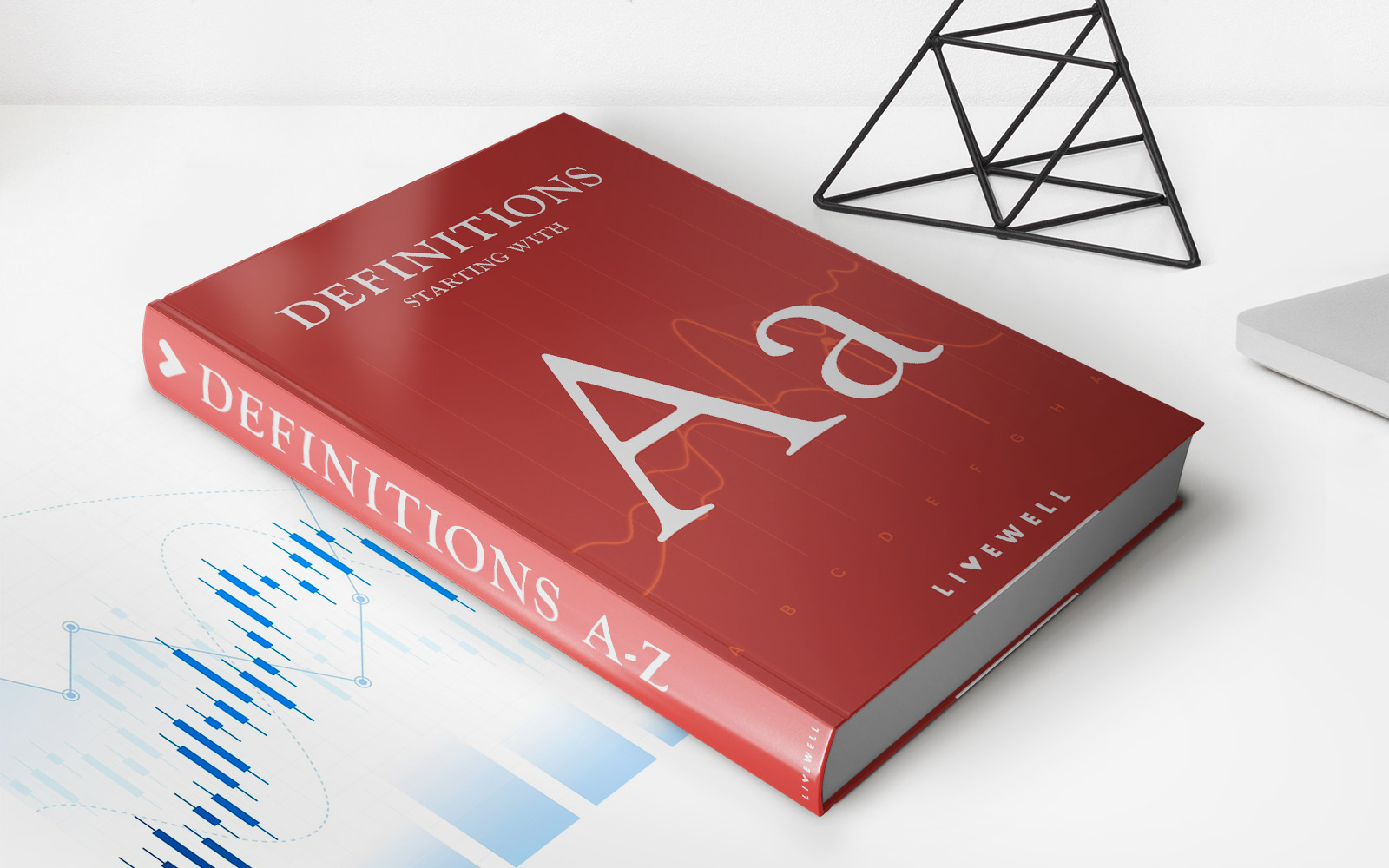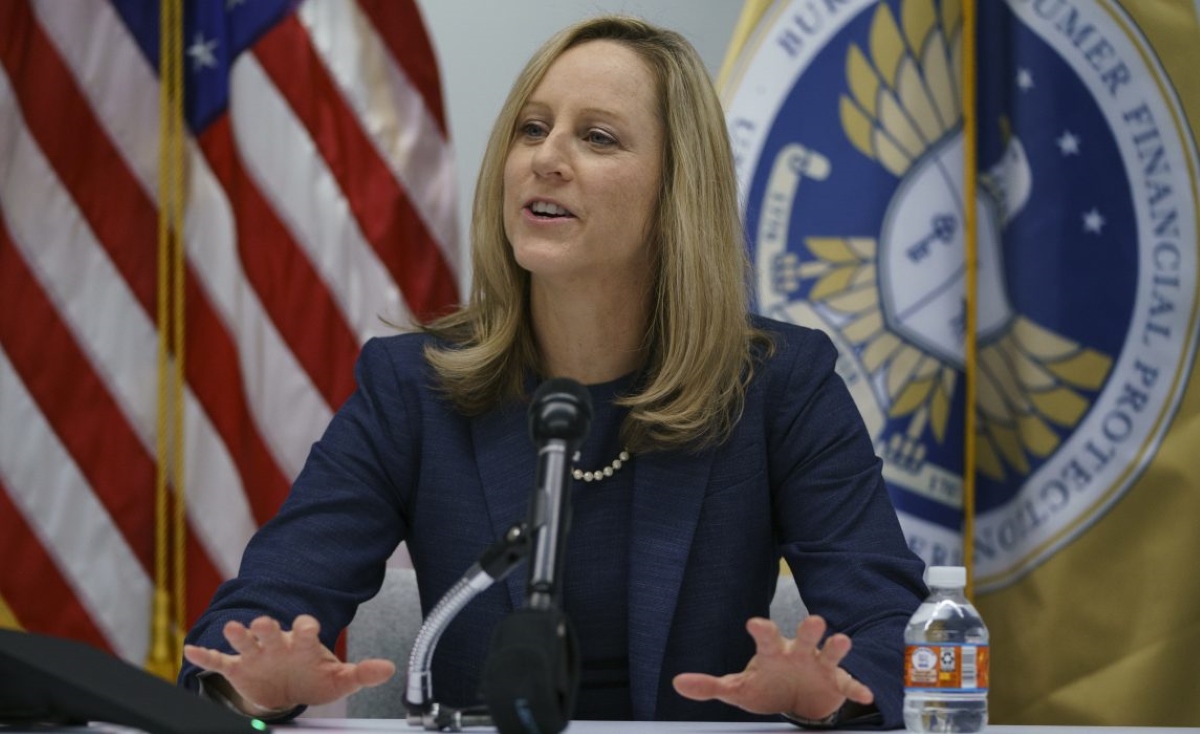

Finance
What Happens When You Default On Student Loans
Published: January 20, 2024
Discover the consequences of defaulting on student loans and how it can impact your financial future. Explore ways to manage your finances to prevent default.
(Many of the links in this article redirect to a specific reviewed product. Your purchase of these products through affiliate links helps to generate commission for LiveWell, at no extra cost. Learn more)
Table of Contents
Introduction
Student loans have become a common way for individuals to finance their education. However, the burden of student loan debt can be overwhelming for many borrowers. In some cases, borrowers may find themselves unable to keep up with their loan payments, leading to default.
Defaulting on student loans occurs when a borrower fails to make their monthly payments for an extended period of time. This can have serious consequences for the borrower, including damage to their credit score, collection efforts by loan servicers, and potential legal actions.
In this article, we will explore what happens when you default on student loans. We will discuss the consequences of default, the impact on credit scores, the collection efforts that loan servicers may employ, and the potential legal actions that can arise. We will also explore rehabilitation and consolidation options, as well as the implications for financial aid eligibility. Finally, we will provide tips on how to prevent defaulting on student loans.
Understanding the implications of defaulting on student loans is crucial for borrowers. By being aware of the consequences and proactive in managing their loans, individuals can work towards avoiding default and minimizing the negative impact on their financial future.
Understanding Defaulting on Student Loans
Defaulting on a student loan occurs when a borrower fails to make their scheduled payments for a specified period of time. The exact time frame for default varies depending on the type of loan, but it typically ranges from 90 to 270 days of missed payments. Once a borrower is in default, the entire loan balance becomes due immediately.
Defaulting on student loans can happen for various reasons, such as financial hardship, unemployment, or simply overlooking payment due dates. It’s important to note that defaulting on federal student loans has more severe consequences compared to defaulting on private loans. The government has more collection tools and can take legal action to recoup the funds.
Defaulting on student loans can have long-term financial repercussions. It can severely damage the borrower’s credit score, making it challenging to secure future loans or obtain favorable interest rates. Defaulted loans can also impact job prospects, as some employers conduct credit checks during the hiring process.
It’s essential to understand the terms and conditions of your student loans, including the grace period, repayment options, and consequences of default. Staying informed about the terms of your loans can help you make informed decisions and take preventative measures to avoid default.
Consequences of Student Loan Default
Defaulting on student loans can have significant consequences that can impact your financial well-being. Here are some of the main consequences of default:
- Damage to Credit Score: Defaulting on student loans can severely damage your credit score. This can make it difficult to secure credit cards, loans, or even rent an apartment in the future. A lower credit score can also lead to higher interest rates on any loans you are able to obtain.
- Collection Efforts: When you default on your student loans, loan servicers can take aggressive collection actions to recover the unpaid debt. This can include constant phone calls, letters, and emails demanding payment. They may also report the delinquency to credit bureaus, further worsening your credit score.
- Wage Garnishment: In certain cases, loan servicers can obtain a court order to garnish your wages. This means that a portion of your paycheck will be deducted before you receive it, making it even more difficult to cover your living expenses.
- Legal Actions: If attempts to collect the debt are unsuccessful, loan servicers can take legal action against you. This can result in a lawsuit and, if they are successful, they may obtain a judgment allowing them to garnish your wages or seize your assets.
- Tax Refund Seizure: Defaulted borrowers may also have their tax refunds seized by the government. The Department of Treasury has the authority to intercept federal tax refunds and apply them towards the outstanding student loan debt.
- Loss of Federal Benefits: Defaulting on federal student loans can also lead to the loss of certain federal benefits. For example, you may be ineligible for future student aid, such as grants, scholarships, or work-study programs. Additionally, you may lose the ability to defer or forbear other federal loans.
It’s crucial to understand that these consequences can have long-lasting effects on your financial stability and future opportunities. Taking proactive steps to address your student loan debt and prevent default is essential to avoid these negative repercussions.
Impact on Credit Score
Defaulting on student loans can have a significant impact on your credit score. Your credit score is a three-digit number that reflects your creditworthiness and indicates how likely you are to repay your debts. Here’s how defaulting on student loans can affect your credit score:
- Delinquency: When you miss a student loan payment, your account becomes delinquent. Your loan servicer will report this delinquency to the credit bureaus, and it will have a negative impact on your credit score. The longer the delinquency, the more significant the impact.
- Default: If you continue to miss payments and enter into default, the negative impact on your credit score becomes even more severe. Defaulting on student loans can cause your credit score to plummet by several hundred points.
- Collections: Loan servicers can send your defaulted loan to a collection agency. This can result in an additional negative mark on your credit report, further damaging your credit score.
- Public Record: If your loan servicer takes legal action against you and obtains a judgment, it becomes a public record. Public records, such as lawsuits or wage garnishments, can have a significant adverse effect on your credit score and stay on your credit report for up to seven years.
- Difficulty Accessing Credit: Defaulting on student loans can make it challenging to access credit in the future. Lenders may be hesitant to extend credit to individuals with a history of loan default, or they may offer credit at higher interest rates. This can make it harder to obtain credit cards, car loans, or mortgages.
It’s important to understand that the negative impact on your credit score can remain for several years, making it difficult to recover financially. However, taking proactive steps to rehabilitate your loans, such as entering into a repayment plan or loan rehabilitation program, can help improve your credit score over time.
Collection Efforts by Loan Servicers
When borrowers default on their student loans, loan servicers have various collection tools at their disposal to recoup the outstanding debt. Here are some common collection efforts employed by loan servicers:
- Phone Calls and Letters: Loan servicers will begin by contacting borrowers via phone calls, emails, and letters to remind them of their overdue payments. These communications may increase in frequency and intensity as the delinquency persists and default becomes imminent.
- Credit Reporting: Loan servicers are obligated to report delinquent and defaulted loans to credit bureaus. This will negatively impact the borrower’s credit score and appear as a negative entry on their credit report, making it harder to secure credit in the future.
- Collection Agencies: In some cases, loan servicers may transfer defaulted loans to third-party collection agencies. These agencies will then take over the collection efforts on behalf of the loan servicer. Borrowers can expect to receive more aggressive collection attempts, including phone calls, letters, and potentially even in-person visits.
- Settlement Offers: In an effort to resolve the defaulted loan, loan servicers or collection agencies may offer borrowers the option of settling the debt for an amount less than the total outstanding balance. This can provide some relief to borrowers and allow them to satisfy the debt while avoiding further legal actions.
- Legal Actions: If all collection efforts fail, loan servicers can take legal action against borrowers. This can include filing a lawsuit to obtain a judgment, which allows them to pursue additional collection methods such as wage garnishment or bank account levies.
It is important for borrowers to stay proactive and engaged with their loan servicers if they are experiencing financial difficulty and are at risk of default. Open communication and seeking assistance can sometimes lead to alternative repayment options or arrangements that can help avoid or resolve default.
Wage Garnishment
Wage garnishment is a legal collection tool that loan servicers can use to recover defaulted student loan debt. It involves the court ordering your employer to withhold a portion of your wages and send it directly to the loan servicer to satisfy the outstanding debt. Here’s what you need to know about wage garnishment:
Process: Before wage garnishment can occur, loan servicers must first obtain a court order. Once they have the order, they will provide it to your employer, who will then deduct the specified amount from your paycheck and remit it to the loan servicer. Wage garnishment typically continues until the debt is satisfied or until a different payment arrangement is made.
Limitations: There are legal limitations on the amount that can be garnished from your wages. The maximum garnishment amount is generally capped at 25% of your disposable income, or the amount by which your income exceeds 30 times the federal minimum wage, whichever is less. However, in cases of extreme financial hardship, the garnishment amount can be reduced further.
Impact: Wage garnishment can have a significant impact on your financial well-being. The deducted portion of your wages may make it difficult to cover your living expenses and meet other financial obligations. It can also strain your relationship with your employer, as they may need to dedicate resources to comply with the garnishment order.
Prevention and Resolution: It’s crucial to address your defaulted student loan debt before wage garnishment becomes a reality. If you’re struggling to make payments, contact your loan servicer to explore alternative repayment options, such as income-driven repayment plans or loan rehabilitation programs. These options can help you avoid wage garnishment and establish a more manageable payment arrangement.
Remember, wage garnishment can exacerbate your financial difficulties and negatively impact your credit score. It is in your best interest to address your defaulted loans as soon as possible and work towards a resolution with your loan servicer.
Legal Actions
Defaulting on student loans can result in legal actions taken against you by loan servicers or collection agencies. Here are some of the potential legal actions that can be pursued:
Lawsuits: Loan servicers may file a lawsuit to obtain a judgment against you for the unpaid student loan debt. If successful, the court can order you to repay the debt and may provide the loan servicer with additional collection methods, such as garnishing your wages or seizing your assets.
Wage Garnishment: As mentioned in the previous section, wage garnishment can be a consequence of defaulting on your student loans. If a judgment is obtained, your employer may be ordered to deduct a portion of your wages and send it directly to the loan servicer to satisfy the debt.
Asset Seizure: In extreme cases, loan servicers can seek a court order to seize your assets as a means of satisfying the defaulted student loan debt. This can include seizing funds from your bank accounts, putting liens on property you own, or even forcing the sale of your assets to recoup the outstanding debt.
Legal Defenses: It’s important to note that there are some legal defenses that may be available to borrowers facing legal actions. These defenses can vary depending on the circumstances, such as proving that the loan servicer made errors in calculating the debt or violating your rights as a borrower. Consulting with an attorney specializing in student loan law can help you understand your options and potential defenses.
Statute of Limitations: It’s worth noting that student loans do not have a statute of limitations, meaning there is no time limit for loan servicers to pursue legal action to collect the debt. This is in contrast to other types of debts that may become unenforceable after a certain period of time. Therefore, it’s important to address defaulted student loans promptly to avoid potential legal consequences in the future.
Legal actions can have serious implications and should be taken seriously. It’s advisable to seek professional advice if you are facing legal actions related to your defaulted student loans. Working with an attorney can help you understand your rights, navigate the legal process, and explore potential resolutions to the situation.
Rehabilitation and Consolidation Options
If you find yourself in default on your student loans, there are options available to rehabilitate your loans or consolidate them to regain control of your financial situation. Here are two common options to consider:
Loan Rehabilitation: Loan rehabilitation is a process that allows borrowers to recover from default by making a series of agreed-upon monthly payments. To rehabilitate your loans, you must work with your loan servicer to establish an affordable payment plan based on your financial situation. Once you successfully make the agreed-upon payments for a determined period of time, typically nine to ten months, your loans will be considered rehabilitated, and the default status will be removed from your credit report. Loan rehabilitation can reinstate benefits like loan deferment, forbearance, and eligibility for income-driven repayment plans.
Loan Consolidation: Loan consolidation involves combining multiple federal student loans into a single loan. This can simplify repayment by reducing multiple payments into one and potentially lowering the monthly payment through an extended repayment term. Consolidation also allows borrowers in default to regain eligibility for benefits like loan deferment, forbearance, and income-driven repayment plans. However, it’s important to note that consolidation does not remove the default record from your credit report. It is a way to restart your repayment journey and avoid further default.
Before deciding on loan rehabilitation or consolidation, it’s advisable to reach out to your loan servicer to discuss these options and determine which one is the best fit for your specific circumstances. They can provide guidance on eligibility requirements, the impact on your credit, and the repayment terms for each option. Working with your loan servicer can help you develop a plan to get back on track and manage your student loan debt effectively.
Financial Aid Implications
Defaulting on your student loans can have serious implications for your eligibility for future financial aid. Here’s how default can impact your ability to receive financial aid:
Ineligibility for Federal Aid: Defaulting on federal student loans can make you ineligible for future federal financial aid. This includes grants, scholarships, work-study programs, and federal student loans. To regain eligibility, you will need to take steps to resolve your defaulted loans, such as entering into loan rehabilitation or consolidation.
Loss of State Aid: Many states offer financial aid programs that require recipients to be in good standing with their federal student loans. Defaulting on your loans can disqualify you from receiving state-funded financial aid, making higher education more challenging to afford.
Impact on Private Aid: Defaulting on your student loans can also impact your eligibility for private scholarships or institutional aid offered by colleges and universities. Many scholarship programs require recipients to maintain good academic standing and demonstrate financial responsibility, which includes staying current on student loan payments.
Difficulty Transferring Credits: If you default on your student loans, it can create complications if you plan to transfer to another institution. Some schools may refuse to accept transfer credits or withhold transcripts until the defaulted loans are resolved. This can significantly disrupt your academic progress and make it challenging to pursue further education.
Affect on Graduation: In some cases, defaulted borrowers may face restrictions on graduation. Schools may hold diplomas or transcripts until the defaulted loans are addressed, serving as an additional incentive to resolve the debt and bring it back into good standing.
Defaulting on your student loans not only affects your current financial situation but also has long-term consequences for your educational and career goals. It’s crucial to find a way to address your defaulted loans and reestablish your eligibility for financial aid to continue your education and secure a better financial future.
Preventing Default on Student Loans
Defaulting on student loans can have serious consequences, both financially and otherwise. However, there are steps you can take to prevent default and manage your loans responsibly. Here are some strategies to help you prevent default on your student loans:
- Create a Budget: Start by creating a budget that includes your student loan payments. Know how much money you have coming in and how much is going out. Allocate funds each month to cover your loan payments and other necessary expenses.
- Explore Repayment Options: Familiarize yourself with the various repayment options available for your student loans. Federal loans offer options like income-driven repayment plans, which base your monthly payment on your income and family size. Explore your eligibility for these programs and choose a repayment plan that aligns with your financial situation.
- Communicate with Your Loan Servicer: If you’re experiencing financial hardship or anticipate difficulty making your student loan payments, reach out to your loan servicer immediately. They can provide guidance on available options, such as deferment, forbearance, or loan modification, to help you temporarily reduce or suspend your payments.
- Consider Autopay: Setting up automatic monthly payments can help ensure that you never miss a payment. Some loan servicers may offer an interest rate reduction as an incentive for signing up for autopay.
- Stay Informed: Understand the terms of your student loans, including interest rates, grace periods, and repayment terms. Stay updated on any changes or updates to your loan terms and be aware of your rights and responsibilities as a borrower.
- Seek Financial Assistance: If you’re facing financial hardship, explore potential financial assistance programs that can help you manage your student loan debt. Look into forgiveness programs, loan repayment assistance programs, or scholarships that can help alleviate the financial burden.
- Manage Your Finances Wisely: Develop good financial habits, including budgeting, saving, and managing debt. Avoid taking on additional debt unless necessary, and prioritize your student loan payments in your financial plan.
- Keep Track of Important Deadlines: Make note of important deadlines, such as when your grace period ends or when repayment begins. Missing these deadlines can lead to missed payments and potential default.
By being proactive and taking steps to manage your student loans, you can prevent default and maintain control over your financial future. Remember, always reach out to your loan servicer if you’re experiencing financial difficulties. They are there to help you find solutions and prevent default.
Conclusion
Defaulting on student loans can have serious and long-lasting consequences. Understanding the implications of default and taking proactive steps to prevent it is crucial for borrowers. By staying informed about repayment options, establishing a budget, and maintaining good communication with loan servicers, you can manage your loans responsibly and avoid default.
Defaulting on student loans can damage your credit score, subject you to aggressive collection efforts, and even result in legal actions. These negative outcomes can make it difficult to secure future credit and may impact your employment prospects.
However, there are options available to rehabilitate your loans or consolidate them to regain control of your financial situation. Loan rehabilitation and consolidation programs provide opportunities to bring your loans back into good standing and regain eligibility for various benefits and financial aid programs.
Remember, prevention is key. Take proactive measures to prevent default by creating a budget, exploring repayment options, and staying informed about your loans. In cases of financial hardship, reach out to your loan servicer as early as possible to discuss alternative repayment plans or assistance programs.
By managing your student loans responsibly and seeking help when needed, you can prevent default and pave the way for a more stable financial future. Stay proactive, stay informed, and take control of your student loan debt to achieve your educational and financial goals.














